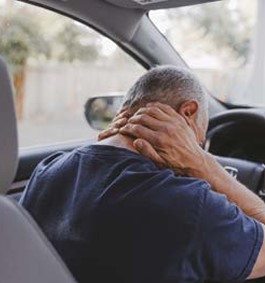
Lawyers have welcomed a Supreme Court ruling that ‘mixed injury’ claims should receive full compensation under common law as well as the statutory tariff for whiplash
Under the Civil Liability Act 2018, a tariff system now applies to whiplash injuries. However, common law damages for pain, suffering and loss of amenity (PSLA) caused by whiplash injuries are generally higher, and are set out in the Judicial College ‘Guidelines for the assessment of general damages in personal injury cases’.
Hassam and another v Rabot and another [2024] UKSC 11 concerned the approach courts should take where both non-tariff and tariff injuries resulted from the same accident. The defendant insurer argued that common law damages should only be paid on top of the tariff compensation if the claimant could show the non-whiplash injury caused different (‘non-concurrent’) PSLA.
Delivering the lead judgment, Lord Burrows explained this approach ‘requires the claimant to identify with some precision any different PSLA’.
The claimants and interveners, the Association of Personal Injury Solicitors (APIL) and the Motor Accident Solicitors Society, advocated adding both amounts without deduction.
The claimants advocated as their secondary case that both amounts be added together then the court ‘stand back’ and deduct any overlap from the non-tariff sum, with the caveat that the deduction should not reduce the overall amount below what would have been awarded for the non-whiplash injury alone. ‘The caveat’ was the approach laid down by Lady Justice Nicola Davies and agreed by the majority of the Court of Appeal.
The Supreme Court unanimously agreed that the third option, with the caveat, was the correct approach.
Ian Davies, partner at Kennedys, said the caveat ‘will be a significant boost to claimants’ and the decision ‘provides absolute certainty moving forward on the approach to be adopted’.
Andrew Wild, head of legal practice at First4InjuryClaims, hailed the judgment ‘a victory for claimants who suffer a mixed injury following a road traffic accident’.
He added: ‘It ought to now end insurers’ baseless objections to the clear and sensible guidance laid down by the Court of Appeal.’
APIL secretary Brett Dixon said the decision was positive, but ‘we maintain that the whiplash tariff itself is grossly unfair’.









